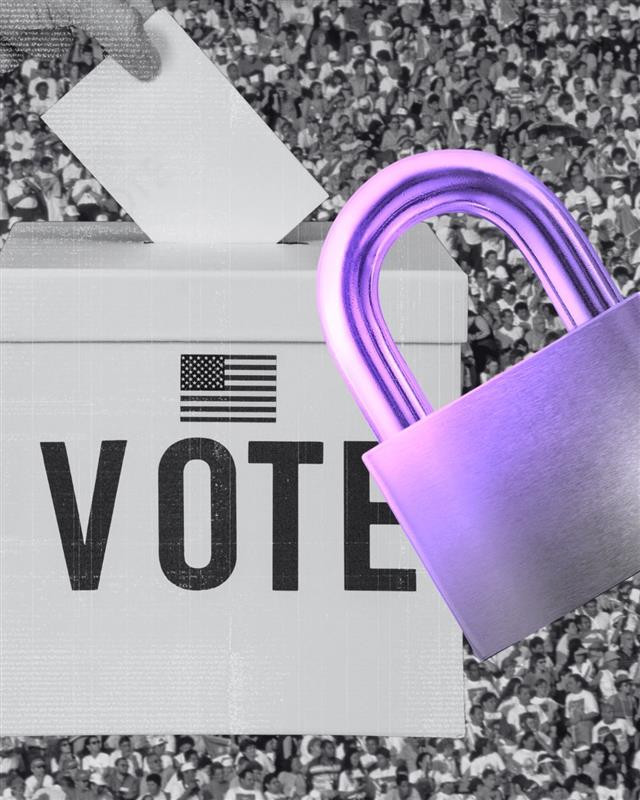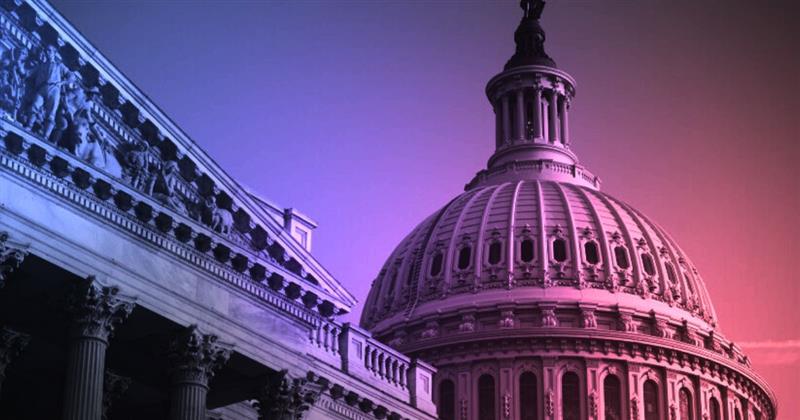Labeling independent voters as “spoilers” because of their aversion to partisan politics and the two-party system only continues this damaging cycle that forces voters to choose between two less-than-ideal options.
The Big Picture
In an era of extreme partisanship, independent voters – a growing segment of the American electorate – are a major challenge for both the Republican and Democratic parties. These voters are often dismissed as “spoilers” and seen as indecisive by partisans on both sides; as each party shifts to the political extremes to satisfy their base, they seem unable or unwilling to speak to independent voters - even during election season.
Zooming In
In his farewell address to the nation, President Washington warned of the perilous consequences that partisan politics would have on American governance. Washington stated, “...all combinations and associations, under whatever plausible character, with the real design to direct, control, counteract, or awe the regular deliberation and action of the constituted authorities, are destructive of this fundamental principle, and of fatal tendency. They serve to organize faction, to give it an artificial and extraordinary force; to put, in the place of the delegated will of the nation, the will of a party, often a small but artful and enterprising minority of the community… they [political parties] are likely, in the course of time and things, to become potent engines, by which cunning, ambitious, and unprincipled men will be enabled to subvert the power of the people and to usurp for themselves the reins of government, destroying afterwards the very engines which have lifted them to unjust dominion.”
On the cusp of our nation’s 250th birthday, it’s hard to see how George Washington was wrong. We are a young nation, and our hyperpartisanship woes may be growing pains as we enter a political era defined by greater independence from the two-party system.
Independent voters—those uncommitted to a political party and free agents of the American electorate—decide America’s elections. Given that independent voters decide elections, does it make any sense at all to call them spoilers? Put differently, neither major political party can win an election with its base alone. So, neither party can win without independents, yet independents are the spoilers? Make it make sense!
These voters are not unprincipled; they make calculated decisions about what they believe is best for themselves and the country, just like voters who are committed to a political party. Independent voters are rational, informed, and thoughtful about the issues of the day.
Independent voters tend to swing from one election to the next. In fact, the candidate aiming to win must secure independent votes to do so. Turning out one’s party base is important, but failing to win over independent voters will doom a campaign. That these voters tend to shift from election to election does not mean they lack principles; it indicates that neither party ever garners the support of a majority of the electorate. Why might that be?
Our political parties have a base that is more polarizing than the average American voter. The Republican Party’s base is naturally more conservative, and the Democratic Party’s base is more liberal; however, both are becoming more extreme. While the bases of the two major parties grow more politically radical, independent voters are increasingly discouraged. Given the quality of the two options, independent voters have to make carefully calculated decisions about who they will vote for.
Labeling independent voters as “spoilers” because of their aversion to partisan politics and the two-party system only continues this damaging cycle that forces voters to choose between two less-than-ideal options. It overlooks a core concern of millions of Americans: that we want more choices, not only in our daily lives, but also in our politics.
This concern cannot be ignored. Independent voters will continue to reject the two-party system if partisan politics fail to address a crisis of leadership, affordability, social tolerance, and other substantive issues that impact the everyday lives of Americans.
Independent Lens
Dismissing independent voters as spoilers and drowning out their voice with more outrageous 30-second bites on cable news will only accelerate the decline of the major parties. What is really a race to the bottom will only push away independent voters faster and create more of them. Independent voters tend to be more socially tolerant and skeptical of heavy government involvement in the economy and personal lives. As the two major parties drift toward the political extremes, we see a desire for more power in these areas when either party is in control. This, too, leads to more independent voters who become disillusioned with the two-party system.
On his journey across America, de Tocqueville observed in Democracy in America, “I do not know if the people of the United States would vote for superior men if they ran for office, but there can be no doubt that such men do not run.” Voters, especially independents, are increasingly feeling like these superior men and women are not their options for high office. It is a concern that more polarized political parties are willing to ignore, even if it leads to their own downfall.


.jpeg)


.jpg)